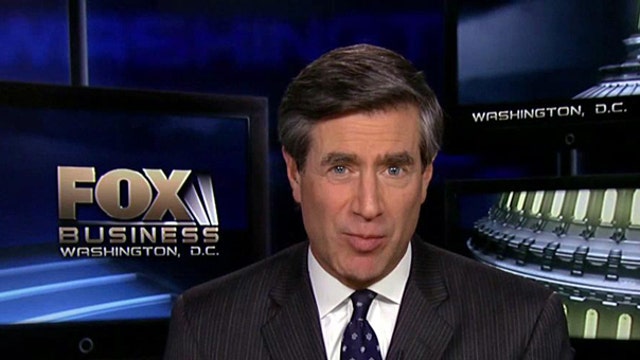Top House Republican Pushes Back at IMF Gas Tax Study
The top House Republican on energy policy criticized a new proposal from the International Monetary Fund to raise gasoline taxes to help reduce carbon emissions and fix other problems like budget deficits--and even traffic congestion and accidents. In a new study on global energy and climate change Wednesday, the IMF suggested the U.S. consider $1.40 a gallon in higher gas taxes. If adopted, the increase would triple gas taxes in the U.S. – local, state and federal combined -- and send the price of gas higher than $5 a gallon. "Good grief! Higher gas prices hit those who can least afford it the most as American families are forced to pay a larger percentage of their income on higher energy prices,” Rep. Fred Upton (R-MI), chairman of the House Energy and Commerce Committee, said Thursday. “Drivers across the country are already struggling to pay up to $4.00 a gallon for gas, and further price increases at the pump could be devastating to low and middle-class families and disastrous to our economic recovery. Instead of finding way to make gas more expensive, our focus needs to be on finding solutions to keep energy prices affordable." The IMF’s idea appears to be in “park” in Washington, D.C., anyway. Congress has been unable to agree on higher gas taxes since 1993, the last time it raised the federal gas tax, currently 18.4 cents on a gallon of regular. And the Obama administration has said it does not support specific carbon taxes as part of solutions for climate change. Nonetheless, the IMF paper comes as policymakers in the U.S. and other nations struggle with budgets and deficits and as global leaders try to negotiate climate change fixes. The study advocates changing or eliminating consumer energy subsidies globally. The subsidies come in many forms, from cash payments to lower-income families to keeping fuel prices down. “The time has come for subsidy reform and carbon taxation," the IMF's deputy director, David Lipton, said in a speech Wednesday. “The IMF will draw attention to the issue and help those who want to go forward.” Another official said the IMF's tax numbers for the U.S., as well as those it researched for other nations, are just for their information and that it will advise any country that wants to consider them. “In general, energy taxation in most countries in the world is not high enough to pay for things like the pollution in the environment, the cost of traffic congestion--but we don't provide recommendations for specific countries,” said Carlo Cottarelli, director of IMF’s fiscal affairs department. “This paper aims at providing information, not specific recommendations to any specific countries. The paper is about the overall issue of energy taxation. Of course, we make calculations for specific countries and specific problems, but that's not the focus of the paper.” He said one of the IMF’s main goals with the study is to help countries address their fiscal problems but that individual countries might also decide to use higher taxes to provide tax cuts elsewhere. He also said energy tax increases could be phased in to avoid sharp price increases that might hurt the economy. The IMF said higher gas prices could help reduce traffic jams and accidents by discouraging driving. Spokespeople for other Republican and Democratic lawmakers on key energy policy committees in Congress did not comment on the IMF study or respond to requests for comment.




















